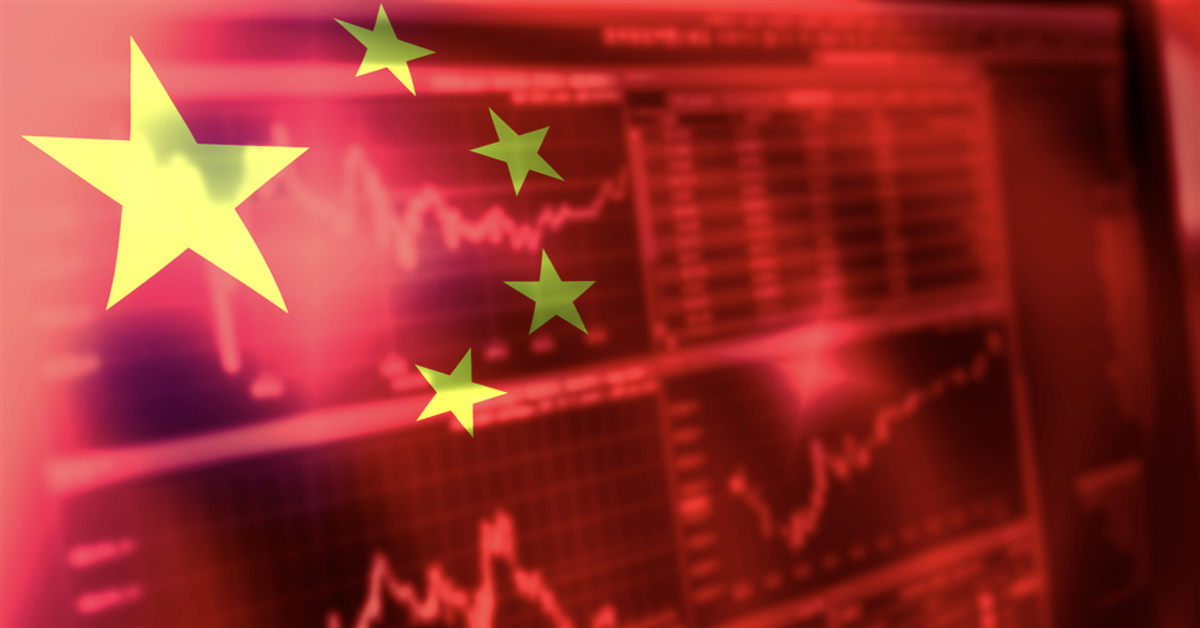
Even though the Chinese stock market has been scrutinized extensively in the past couple of years, some investors have begun to realize that there is much more upside than apparent risk for Asia’s powerhouse. China’s technology sector has the lowest valuation in history compared to its American counterpart.
Measured through the KraneShares CSI China Internet ETF (NYSE: KWEB), names in this space now trade at steep discounts against peers like Alphabet Inc. (NASDAQ: GOOGL) and even Amazon.com Inc. (NASDAQ: AMZN). While discounted stocks might not look attractive to some investors based on their price action, others recognize the value to be had in them.
This is why stocks like Alibaba Group (NYSE: BABA), Baidu Inc. (NASDAQ: BIDU), and the overall iShares MSCI China ETF (NASDAQ: MCHI) have delivered shareholders a significant rally this week, one of the best performances since the few months after the COVID-19 pandemic. Retail investors can also feel a bit safer because some of Wall Street’s favorite investors have also given these companies a chance to make billions.
Chinese Government Interventions Improve the Risk-Reward Balance for Investors
Recently, the Federal Reserve (the Fed) in the United States decided to lower interest rates by half a percent, or 50 basis points. The Chinese economy has been criticized long enough for its slowdown and contractions, so the government has also decided to cut rates by the same amount.
The difference is that the Chinese ETF trades at only 47% of the high prices it made in early 2021, while the technology-focused NASDAQ 100 index trades at 96% of its 52-week high now. This means that the potential reward is much bigger in China than the pullback the U.S. technology space could make after these runs.
Stanley Druckenmiller decided to sell out of NVIDIA Co. (NASDAQ: NVDA) after realizing the potential upside was no longer that attractive; it is no surprise to see his former mentor and boss George Soros initiate a $73.4 million position in Alibaba.
As lower rates start to spread through the Chinese economy, the consumer discretionary sector and rate-dependent technology companies will probably see the benefits first, so they have become the top choice for other mega investors as well.
Who’s Buying Chinese Stocks Now and What They’re Adding to Their Portfolios
Some investors would recognize him for predicting the 2008 financial crisis, but Michael Burry has now made Alibaba his top holding. After buying it for the better part of 2024, Burry’s portfolio is now reported to hold up to 155,000 shares valued at roughly $14.8 million today.
The trend doesn’t end there for Burry, as he also chose Baidu as his fourth-largest position, with 75,000 shares valued at approximately $9 million. Coming right after Baidu, Burry chose JD.com Inc. (NASDAQ: JD) to be his fifth-largest position, with 250,000 shares carrying a value of $8.3 million today.
Those names are the common choice among investors today. David Tepper has recently deviated from his typical picks in the financial and technology sector to pick on Chinese stocks. For Tepper, his fund bought up to 10,500,000 shares for an approximate value of just over $1 billion in the portfolio.
Considering that Alibaba trades at less than a third of the $316 a share high it made after COVID-19, it makes sense for these investors to look at the potential risk-to-reward ratios and decide if it is worth taking a risk on Chinese stocks.
Wall Street’s Latest Take on Alibaba and Baidu: Key Insights for Investors
Starting with Alibaba, analysts now justify a consensus price target of $107.6 a share on the stock, calling for 12.7% upside from where it trades today. However, those at Susquehanna decided to go above and beyond the consensus and place a $130 valuation on Alibaba, implying it could run by a much bigger 35.4% from today’s price.
When it comes to Baidu, the stock trades at only 68% of its 52-week high to offer enough potential upside to consider it. This is why analysts at Citigroup see a potential case for the stock to trade as high as $155 a share, daring the stock to stage a massive 64.8% rally from where it has traded down to today.
Here are other insights for investors to consider: Alibaba’s main competitor could be assumed to be Amazon, which is why the Chinese giant’s 25.1x P/E ratio means a significant discount to Amazon’s 46.0x valuation today. For Baidu, competition can only arguably be found in shares of Google.
Baidu’s 12.4x P/E valuation would also offer investors a steep discount compared to Google’s valuation of 23.3x P/E today, despite a recent selloff in that stock. When it comes to upside and diminished risk, investors all over are finding Chinese stocks to be the winners; maybe retail investors should, too.





